New Jersey Construction Contracts
- Private Jobs
- Public Jobs
- Top Links
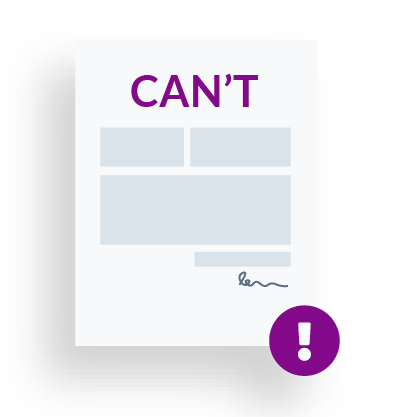
Lien Rights Can't Be Waived By Contract
New Jersey expressly prohibits the ability to waive lien rights by contract as against public policy.
Pay-If-Paid Is Enforceable
Pay-if-paid clauses are enforceable in NJ as long as it expressly shifts the risk of nonpayment to the subcontractor.
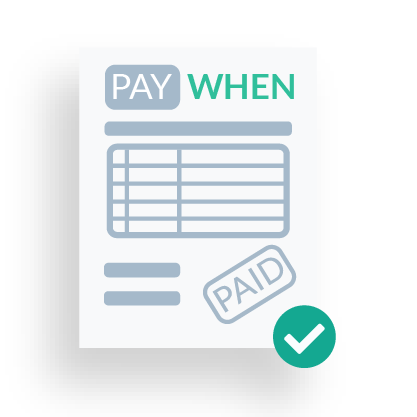
Pay-When-Paid Is Enforceable
Pay-when-paid clauses are enforceable in NJ, but merely sets a reasonable time for payment, regardless if the owner has paid.
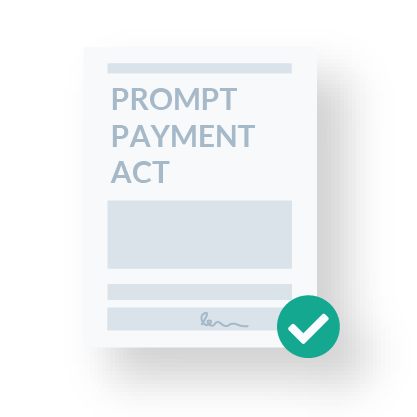
Payment Timing May Be Modified By Contract
Payments by owners must be made within 30 days of the contractual billing cycle. While all other payments must be made within 10 days of receipt unless the subcontract specifies otherwise.
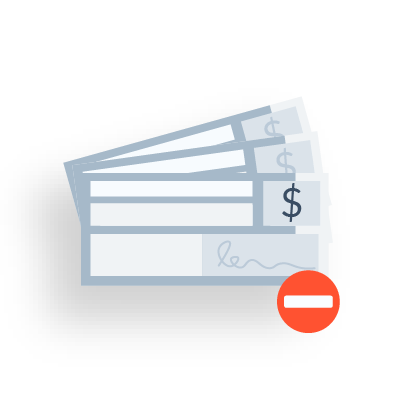
Retainage Mostly Unregulated
New Jersey does not regulate retainage on private projects. The terms of the contract will apply.
Pay-If-Paid Is Enforceable
Pay-if-paid clauses are enforceable in NJ as long as it expressly shifts the risk of nonpayment to the subcontractor.

Pay-When-Paid Is Enforceable
Pay-when-paid clauses are enforceable in NJ, but merely sets a reasonable time for payment, regardless if the owner has paid.

Payment Timing May Be Modified By Contract
Payments by the public entity must be made within 30 days of the contractual billing cycle. While all other payments must be made within 10 days of receipt unless the subcontract specifies otherwise.
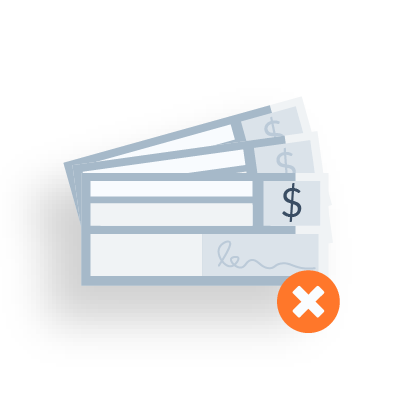
Maximum Retainage Cannot Be Modified
On most NJ public works projects, the amount of retainage cannot exceed 2% of each progress payment, but after substantial completion, this must be reduced to 1%.
A construction contract outlines each party’s obligations, rights, and remedies on a project. But although the language in specific contract clauses is typically negotiable, New Jersey has certain rules that govern what the agreement must include — and what is prohibited.
Keep in mind that, while New Jersey’s rules for construction contract terms are written into state law, the courts determine how strictly those laws should be interpreted — and those interpretations can change.
On this page, you’ll find resources, legal information, and answers to frequently asked questions about New Jersey’s construction contract and payment terms requirements.
New Jersey construction contract provisions
While New Jersey generally allows construction parties to set the terms of their agreement, there are some laws that regulate specific types of contract provisions. Any contract clause that contradicts the law is invalid and unenforceable.
“No lien” clauses
No-lien clauses or any other similar provisions that attempt to waive a contractor’s lien rights in their contract are strictly prohibited in New Jersey as against public policy.
Contingent payment clauses
Both pay-if-paid and pay-when-paid clauses in New Jersey are enforceable in construction contracts. However, to have an enforceable pay-if-paid clause, the language must clearly and unambiguously shift the risk of nonpayment to the subcontractor. If the clause fails to include such language, then it will be treated as a pay-when-paid clause, which merely sets a reasonable time for payment.
Payment timing clauses
In New Jersey, the same set of prompt payment provisions apply to both private and public projects. The timing of such payments may be modified by contract between the parties. According to NJ’s prompt pay requirements, payments from the owner/public entity to the general contractor are to be made according to the billing cycle contained within the terms of the contract. Furthermore, all other payments to subs and/or suppliers are required to be made within 10 days of receipt of payment. But this timing may also be modified by the contract between the parties.
Retainage limits
On private projects, the amount of retainage that may be withheld is not regulated by New Jersey law. Thus, the amount that can be withheld, and how long it can be withheld will be governed by the terms of the contract.
Conversely, on NJ public works projects, the amount withheld cannot exceed 2% of each progress payment. When the public works project reaches substantial completion, not more than 1% may be withheld from the remainder of each payment.
New Jersey home improvement contract requirements
New Jersey home improvement contracts are regulated by a number of different statutory provisions. Generally, any home improvement contract in excess of $500 must be in writing, signed by both parties, and include the contractor’s registration number, a copy of the certificate of commercial general liability insurance, the total contract price, a description of the work and materials, start and completion dates, description of any mortgage or security interest in connection with the financing of the improvement, and any guarantee or warranty of the work or materials.
The contract should also contain two notices in 10pt bold-face font; a Notice to Consumer regarding the 3-day right to cancel, and the other stating the Contractor Registration Act and the toll-free number to contact the NJ Division of Consumer Affairs (which must be in all caps), found under NJAC §13;45A-17.11.
Furthermore, if the contract provides for payments over a period of 90 days or more, in addition to the above-mentioned requirements, the contract must also include a Notice to Owner in 10pt bold-face font, and a statement that worker’s comp and public general liability insurance is carried.

